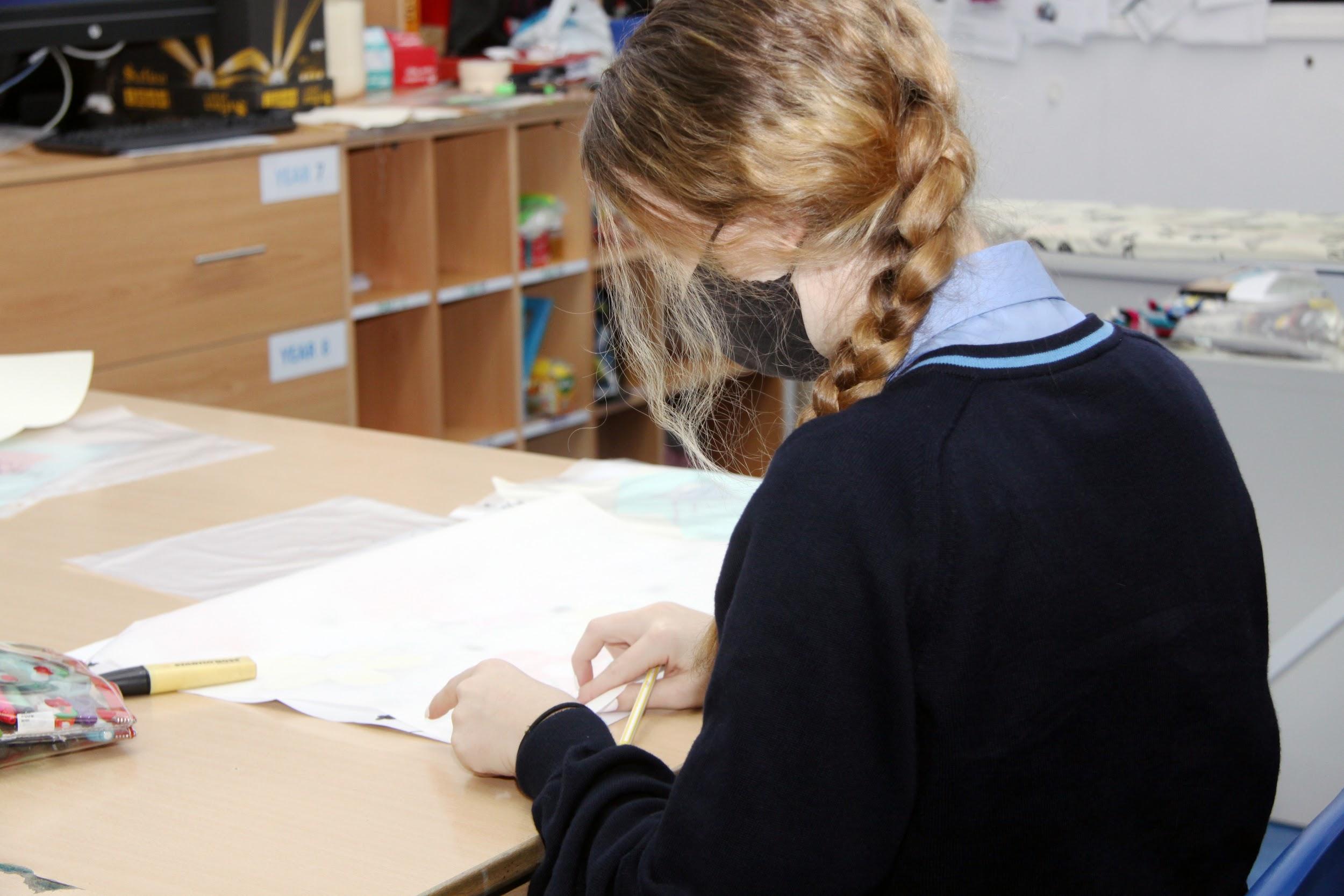
1 minute read
Textiles
ACADEMIC YEAR 2021/2022 YEAR 11

TEXTILES
A creative and technical course in which students design and make textiles products.
The course places an emphasis on a broad range of technical and industrial principles related to the commercial production of everyday items.
COURSE CONTENT
Core Technical Principles
● New and emerging technologies ● Energy storage and generation ● Modern and smart materials ● Systems approach to designing ● Materials and their working properties
Specialist Technical Principles
● Forces and stresses ● Ecological and social footprint ● Scales of production ● Sources and origins ● Using and working with materials ● Stock forms, types and sizes ● Specialist techniques ● Surface treatments and finishes
Designing & Making Principles
● Investigation, primary and secondary data ● Environmental, social and economic challenge ● The work of others ● Design strategies ● Communication of design ideas ● Prototype development ● Selection of materials and components ● Tolerances ● Material management ● Tools and equipment ● Techniques and processes
ASSESSMENTS
Non-Exam Assessment (NEA): 30–35 hours approx - 100 Marks: 50% of GCSE A substantial design and make task, based on Board set criteria. Written exam: 2 hours - 100 Marks: 50% of GCSE. Section A -Core technical principles (20 marks) Section B - Specialist technical principles (30 marks) Section C - Designing and making principles (50 marks)

TEXTILES
SKILLS DEVELOPED
● Creativity and an ability to design and create innovative solutions ● Confidence in using a range of material ● Good communication, organisational and ICT skills are an advantage.
FURTHER STUDY
A Level Fashion and Textiles provides a foundation for students wishing to follow a career in the fashion industry, interior design and the textiles industry. Due to the creative nature of the subject, this course could also lead to further studies in Product Design and Art Design
SPECIFICATION LINK












